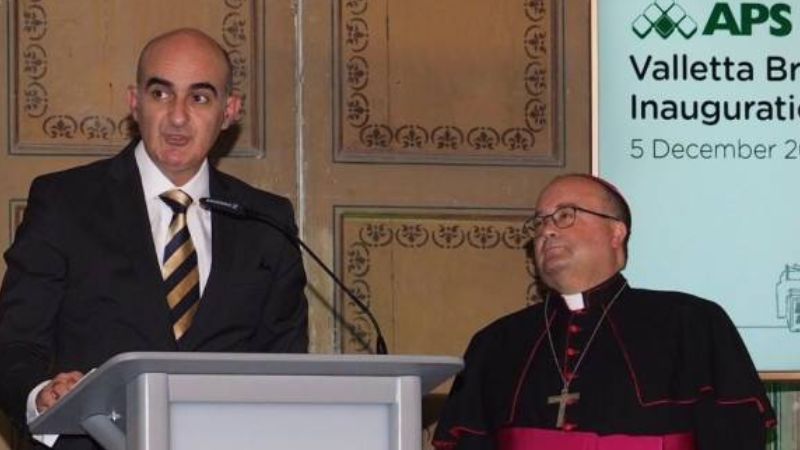The government is firmly against the possibility of the Church’s bank, APS, taking over Malta’s operations of HSBC, The Shift can reveal.
At the same time, the regulators – the Malta Financial Services Authority (MFSA) and the European Central Bank (ECB) – which will eventually have to approve the deal, would likely block it if it ever came before them.
Although the government has not commented on speculation that APS had been in talks with HSBC for years about taking over the operations of Malta’s second-largest lender, senior government sources told The Shift that the government opposes the deal.
According to the sources, Finance Minister Clyde Caruana has already told all those involved, including the Bishops, who are APS’s principal shareholders, that the government did not agree.
Financial experts who spoke to The Shift have already said such a deal was not in Malta’s interests. They stressed the need for another international player.
While the deal has already raised ethical and regulatory concerns, mainly because HSBC and APS handled their ‘secret’ talks without informing the market, the MFSA and the ECB will eventually have to give their go-ahead.
If it ever reaches the regulatory stage, the deal may not even pass its first barrier – the MFSA.
Although the MFSA is an independent regulator on paper, all its governors are appointed by the government. This means the Authority would be unable to approve it considering the government’s stance against it.
The ECB, which considers the MFSA’s recommendations when negotiating such complex agreements, would also likely reject it.
While APS is considered a local bank that is too small to take over the HSBC shares and doesn’t have the financial strength to do so without additional borrowing, the deal is also seen as hurting the Maltese economy and customers.
With HSBC’s exit, Malta will end up without a banking institution of international repute. This departure will continue to dampen Malta’s possibilities of attracting foreign investment.
Malta’s small banking sector already suffers from very restricted competition, and interest rates rarely reflect the international situation. Experts envisage a worse scenario with less competition.
Banking sources told The Shift that HSBC has been trying to exit Malta’s jurisdiction for years. However, it has not found a foreign buyer and has now turned to APS as the last resort option.
The ECB has already intervened to block such takeovers. One notable example was in 2016 when the ECB blocked the larger UBI Banca’s proposed takeover of the Italian bank Banca Popolare.
It had raised concerns about the merger’s potential impact on the stability of the banking sector and its effects on competition and financial stability in the region.
The ECB’s involvement in such matters is part of its broader mandate to ensure the stability and soundness of the European banking system and maintain competitive markets within the Eurozone.













The Minister of Finance cannot block anything. The powers are in the hands of the Authorities, which are regulated by law and by facts. The Minister has no right to interfere with transactions involving private parties with private monies.
Minister Caruana should rather be worrying about the toxic governance climate which the government of which he forms part has created in Malta and which is resulting in an increased reputational and operations risk to foreign banks, several of which have left Malta.
On its part, the Church should be prepared to relinquish its control over APS should a deal go through with HSBC.
The article speaks about regulators!! God forbid they take over HSBMalta!!!
And what would meet this government’s approval, I wonder? Some dodgy bank like Pilatus, which would do their bidding and become a second BOV? I doubt that Malta, with its now irredeamibly tarnished reputation, can attract any reputable financial institutions, at this point.